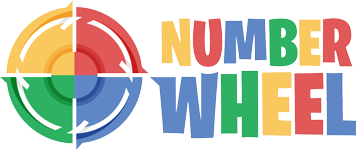
Random wheel tools have become increasingly popular for making bold choices in various aspects of life. Whether it’s deciding what to eat for dinner, which movie to watch, or even making important life decisions, the use of a random wheel can add an element of excitement and spontaneity to the decision-making process. These choice wheels often consist of an array of options that are inputted by the user, and with a simple spin of the wheel, a decision is made. This can be particularly helpful when faced with indecision or when wanting to step out of one’s comfort zone. In this blog article, we will explore the benefits and potential drawbacks of using a random wheel for making bold choices in various areas of life.
The Role of Random Wheel Tools in Decision Making
Random wheel tools, including choice wheel and spin a wheel, play an important role in decision making processes. These tools provide a quick and impartial way to make choices, especially when faced with multiple options. By inputting key options into the choice wheel and spinning it, individuals or groups can quickly determine the best course of action. This can be particularly helpful in situations where emotions or biases may interfere with rational decision making. Ultimately, random wheel tools offer a fair and efficient method for making decisions.
Utilizing Randomization Techniques for Innovation
Randomization techniques have proven to be a valuable tool for fostering innovation in various fields. By introducing randomness into problem-solving processes, organizations can break free from conventional thinking patterns and discover unconventional solutions. Through methods such as random sampling, random assignment, and Monte Carlo simulations, businesses can uncover new insights, improve decision-making, and drive creativity. Embracing uncertainty and unpredictability can lead to breakthroughs in product development, process optimization, and strategic planning.
The Benefits of Randomization Techniques
| Improved decision-making | Enhanced creativity | Uncover new insights |
|---|---|---|
| By introducing randomness into problem-solving processes | Break free from conventional thinking patterns | Discover unconventional solutions |
The Psychological Impact of Randomized Choices
Randomized choices can have a significant psychological impact on individuals. When faced with decisions that are left to chance, individuals may experience feelings of uncertainty and lack of control. This can lead to heightened levels of anxiety and stress, as individuals grapple with the unknown outcomes of their choices.
Additionally, randomized choices can also impact an individual's sense of autonomy and self-efficacy. When outcomes are determined by chance, individuals may feel as though they have less agency in shaping their own destinies. This can result in feelings of helplessness and a diminished sense of personal empowerment.
Conclusion
In conclusion, the psychological impact of randomized choices should not be overlooked. It is important to consider the potential effects of chance-based decisions on individuals' mental well-being, and to provide support and resources to help mitigate any negative consequences.
Probability and Decision Making Random Wheels in Action
Probability and decision making play an integral role in various aspects of our lives. Whether it's determining the likelihood of an event occurring or making choices based on uncertain outcomes, understanding probability is essential. One effective way to visualize probability is through the use of random wheels. These spinning devices demonstrate the concept of randomness and can be utilized in a wide range of scenarios, from gambling games to selecting winners in raffles.
When it comes to decision making, random wheels can be a powerful tool. They offer a fair and unbiased method for selecting options, making them particularly useful in situations where a neutral choice is required. By assigning each possible outcome to a section of the wheel, individuals can let chance dictate their decision, ultimately leading to a random but decisive result.
The Role of Random Wheels in Probability and Decision Making
| Benefits | Applications |
|---|---|
| Unbiased Selection: Random wheels provide an impartial way to choose amongst options, ensuring fairness in decision making. | Game of Chance: Casinos and amusement parks often use random wheels to add an element of unpredictability to their offerings. |
| Visual Representation: Random wheels offer a tangible way to illustrate the concept of probability, making it easier for individuals to grasp the idea. | Prize Drawings: Raffles and giveaways frequently employ random wheels to select winners in a transparent manner. |
In conclusion, probability and decision making are crucial components of everyday life. Random wheels serve as a practical and engaging tool for understanding and implementing these concepts, making them valuable in a wide array of scenarios. By embracing the randomness of these spinning devices, individuals can navigate uncertain situations and make informed, yet unpredictable choices.
Enhancing Creativity through Random Selection Methods
Enhancing creativity can be achieved through various methods, and random selection is one of them. By incorporating random selection methods into the creative process, individuals can break free from their usual thought patterns and explore new ideas. This can lead to unique and innovative outcomes that may not have been possible through traditional means. Additionally, random selection can help individuals overcome creative blocks by introducing unexpected elements into their work. Ultimately, embracing randomness can lead to a more open and flexible approach to creativity.
The Benefits of Random Selection
Random selection encourages spontaneity, exploration, and unconventional thinking. By embracing unpredictability, individuals can stimulate their imagination and discover unexpected connections. This can result in fresh and original ideas that are not limited by preconceived notions or expectations. Additionally, random selection can inspire individuals to take risks and step outside of their comfort zones, leading to a more exciting and dynamic creative process. Overall, random selection methods can enhance creativity by promoting open-mindedness, experimentation, and innovation.
Exploring the Efficiency of Random Wheel Tools in Problem Solving
In today's fast-paced world, problem solving is a crucial skill that is highly sought after in various fields. One interesting and unconventional approach to problem solving is the use of random wheel tools. These tools can range from simple decision-making wheels to more complex randomizers that generate creative solutions. In this article, we will explore the efficiency of random wheel tools in problem solving and their potential impact on decision making processes.
The Role of Random Wheel Tools in Problem Solving
Random wheel tools can be used in a variety of problem solving scenarios, including task prioritization, idea generation, and decision making. By introducing an element of randomness into the problem solving process, these tools can help individuals break free from conventional thinking patterns and explore new and innovative solutions. Additionally, the use of random wheel tools can also add an element of fun and excitement to problem solving, making it a more engaging and enjoyable process.
A Case Study on the Efficiency of Random Wheel Tools
To further understand the efficiency of random wheel tools, a case study was conducted in which a group of individuals were tasked with generating ideas for a new marketing campaign. Half of the group used traditional brainstorming techniques, while the other half utilized a random idea generator wheel. The results revealed that the group using the random wheel tool generated a higher number of unique and creative ideas compared to the traditional brainstorming group. This suggests that random wheel tools can indeed enhance the efficiency of problem solving processes.
"The use of random wheel tools in problem solving can challenge individuals to think outside the box and explore unconventional solutions that they may not have considered otherwise."
In conclusion, the use of random wheel tools in problem solving can be an effective strategy for breaking free from traditional thinking patterns and generating innovative solutions. By introducing an element of randomness, individuals can enhance their creativity and potentially improve their decision making processes. While random wheel tools may not be suitable for every problem solving scenario, they certainly offer a unique and valuable approach to tackling challenges.
Ethical Considerations in Using Randomization for Decision Making
Randomization is a common method used in decision making processes, especially in research and experimentation. However, there are ethical considerations that must be taken into account when using randomization. One key consideration is the potential for unequal distribution of resources or opportunities, which could lead to unfair outcomes.
Another ethical concern is the potential for harm to individuals or communities involved in the randomization process. This could include physical or psychological harm, as well as potential breaches of privacy or confidentiality.
It is important for decision makers to carefully consider the potential ethical implications of using randomization and to ensure that measures are in place to mitigate any potential harm or unfairness.
Key Points:
Randomization is a common method in decision making.
Unequal distribution and potential harm are ethical considerations.
Decision makers must carefully consider and mitigate ethical implications.



